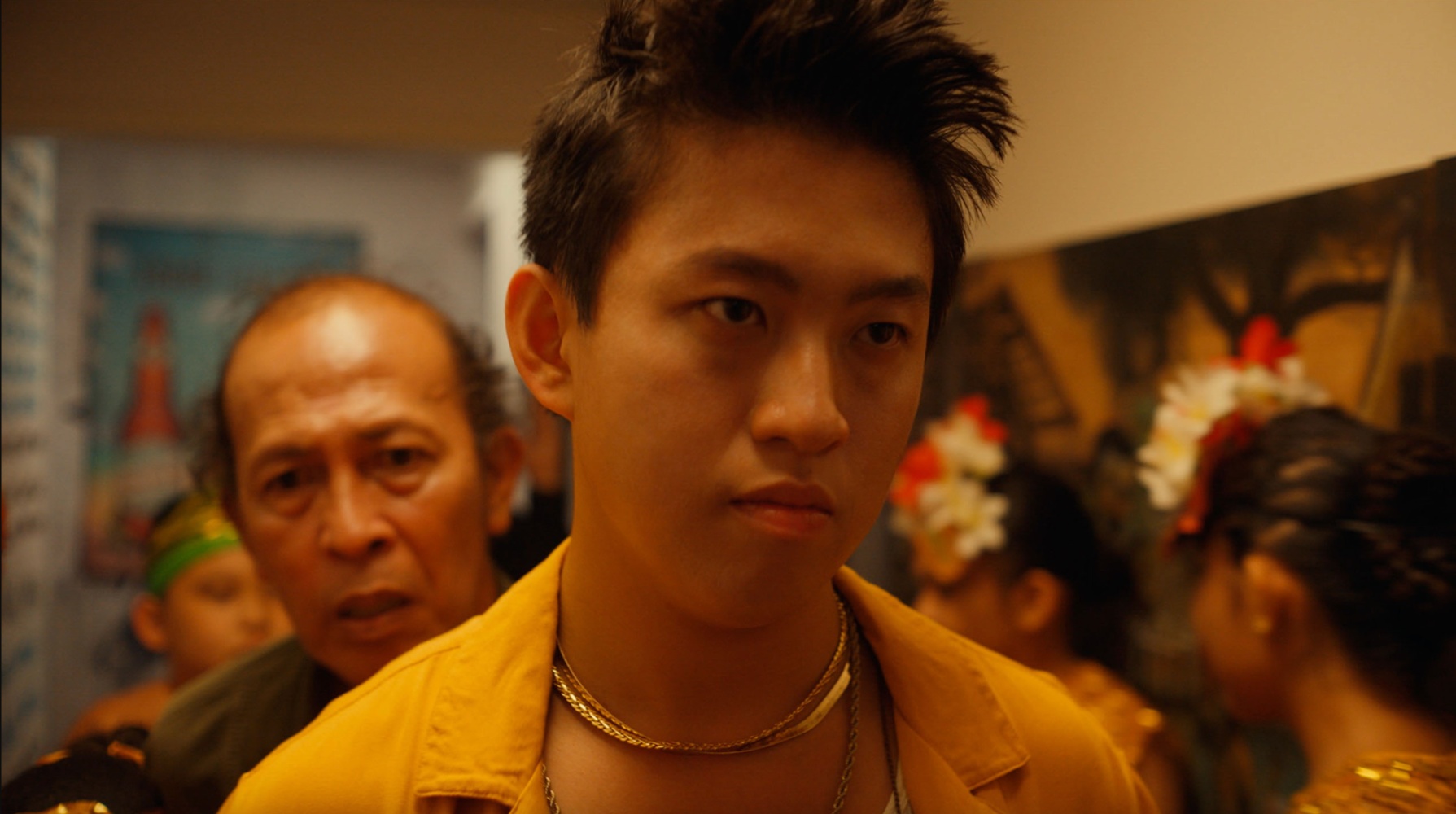Jamojaya begins with a bang. In an interview, up-and-coming rapper James (Brian “Rich Brian” Imanuel) fires his father (Yayu A.W. Unru) as his manager. The story then shifts to Hawaii as the aspiring musician attempts recording an album with his new label. The father just hopes to stick around, believing his son needs him, that he’s currently indispensable. The first act of Justin Chon’s drama focuses on this relationship, and with two committed performers the film (literally) sings.
As Jamojaya progresses, though, messaging gets lost. The luster of the photography, the weight of images, loses power. It starts feeling like an empty exercise: a story with no sticking power, a waste of talented dual leads. The glitz and glamor of this life and this film wear off, leaving behind a sour taste.
None of this is a knock on the film’s cinematography, which amazes in nearly every scene. Director of photography Ante Cheng shows Hawaii as a gorgeous, intimate place. He focuses on the jungle nature of the islands, the twisting trees alongside a thrashing ocean, the power of each overwhelming James’s father. The older man is shot as someone out-of-place, out of his depth in this world of music he barely understands. His confusion is personified in an arcade scene, some of the film’s strongest visual work that also gives Unru one of many opportunities to shine.
Chon’s script cannot match his eye, and the ideas––of tradition, of the father-son relationship, of artist integrity––never reach fruition. He wants to look at the difficulties of the music industry, the exploitative side of success, the sacrifices a rising star must make in order to continue that rise. All of these objectives take a back seat for bright lights and dreamier sequences: Chon opts for flashiness over substance, and the actors cannot overcome such a decision.
Unru and rapper-turned-actor Brian “Rich Brian” Imanuel give themselves over to this story. Both are incredible, displaying built-in pain from a loss in their family. They swirl around one another, ebbing and flowing with the rapper’s success amidst their mutual dependency. Unru and Imanuel save Jamojaya from pointlessness, steering towards a conclusion that won’t have the emotional impact it should. These actors keep the drama intact, stretching its thinness into something material, something watchable by any audience member.
It’s not enough. The handheld camerawork, the strong performances, the moments of grandeur, none of it can save Jamojaya from overstuffed messaging without fulfilling exploration. Chon is clearly fascinated in a variety of topics, stories, and traditions. He’s interested in the machinations of the music industry––especially how it treats a foreigner, a young man who doesn’t know any better. All of this has value if explored deeply, which, to the movie’s detriment, Chon does not do. Instead he fills the already-short runtime with scenes of little impact, notably one in a strip club that serves neither plot nor character.
Jamojaya has the bones to be a good film, possibly even a great one. Its director’s insistence on style turns that potential into mediocrity, ending with a film that’s passable at best. It leaves audiences with indifference––nothing more.
Jamojaya premiered at the 2023 Sundance Film Festival.

